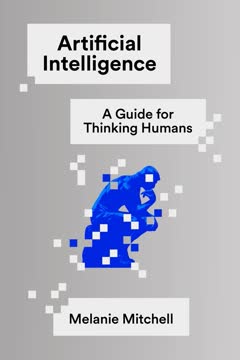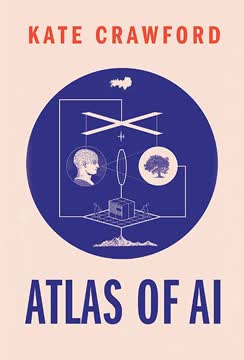重点摘要
1. 人工智能正在重塑人类知识、认知和决策
人工智能正逐渐且不显眼地成为现实的分类器和塑造者,并在国家和全球舞台上扮演着重要角色。
人工智能作为一种新型智能。 人工智能代表了一种革命性的智能形式,它不仅补充了人类的推理能力,有时甚至超越了人类。与以往的技术不同,人工智能能够学习、进化,并为复杂问题提供新颖的解决方案。这种能力使得人工智能可以处理大量数据,识别模式,并在超越人类能力的规模上进行预测。
改变知识获取方式。 人工智能正在从根本上改变我们获取和处理信息的方式:
- 社交媒体和搜索引擎上的个性化内容推荐
- 科学发现中的人工智能研究工具
- 自动语言翻译打破沟通障碍
- 人工智能助手提供即时答案和建议
增强决策过程。 人工智能越来越多地参与到关键决策过程中:
- 医疗:疾病诊断和治疗建议
- 金融:信用评估和投资策略
- 交通:自动驾驶汽车和交通管理
- 政府:政策分析和资源分配
2. 机器学习使人工智能在特定领域超越人类能力
AlphaZero的胜利是决定性的:它赢了二十八局,平了七十二局,没有输一局。
机器学习的突破。 机器学习,特别是深度学习和神经网络,推动了人工智能超越传统编程的限制。这种方法使得人工智能能够从数据和经验中学习,而不是遵循预先编程的规则。
机器学习的关键进展:
- 监督学习:在标记数据上进行分类和预测任务的训练
- 无监督学习:在未标记数据中发现模式
- 强化学习:在模拟环境中通过试错学习
人工智能优势领域:
- 游戏:国际象棋(AlphaZero)、围棋(AlphaGo)
- 科学发现:药物开发(halicin抗生素)
- 图像和语音识别:在特定任务上超越人类
- 语言处理:高级翻译和文本生成(GPT-3)
这些成就展示了人工智能在各个领域的革命潜力,从科学研究到创造性工作,提供了可能超越人类专家的新见解和解决方案。
3. 人工智能驱动的网络平台正在改变全球通信和商业
网络平台不仅为各个国家带来了新的文化和地缘政治难题,而且由于这种技术的天然无国界性,也为政府和更广泛的地区之间的关系带来了挑战。
全球数字生态系统的崛起。 人工智能驱动的网络平台,如社交媒体、电商网站和共享出行应用,创造了超越国界的庞大互联数字生态系统。这些平台利用人工智能个性化用户体验,优化运营,并在前所未有的规模上促进全球互动。
人工智能驱动的网络平台的关键特征:
- 正向网络效应:用户数量增加带来更大价值
- 数据驱动的决策:人工智能分析用户行为以改进服务
- 跨国界影响:超越传统地理限制的运营
地缘政治影响。 这些平台的崛起带来了显著的地缘政治后果:
- 数据主权问题:谁控制和访问用户数据?
- 监管挑战:在创新与国家安全和隐私之间取得平衡
- 经济权力转移:科技巨头拥有与国家相当的影响力
- 文化同质化与碎片化:平台塑造全球话语
随着这些平台的不断发展,它们将越来越多地影响国际关系、经济政策和文化交流,迫切需要新的全球治理和合作框架。
4. 人工智能的崛起挑战了传统的安全概念和国际秩序
人工智能时代可能会使现代战略的谜题变得更加复杂,超出人类意图,甚至可能超出人类的完全理解。
重新定义军事能力。 人工智能正在革命性地改变军事战略和能力,引入了挑战传统威慑、升级和冲突解决概念的新维度。
人工智能对军事行动的影响:
- 自主武器系统
- 增强的情报收集和分析
- 网络战和信息作战
- 战略决策的预测建模
权力平衡的转变。 人工智能融入国家安全框架正在改变全球权力平衡。拥有先进人工智能能力的国家可能获得显著的战略优势,潜在地破坏现有的国际秩序。
国际安全挑战:
- 人工智能技术的军备竞赛
- 由于人工智能驱动的决策增加误判风险
- 和平时期与战争时期活动的界限模糊
- 验证人工智能能力和建立军控措施的困难
随着人工智能在军事和安全应用中的普及,各国必须在技术竞争、伦理考量和新的国际规范与协议的需求之间导航复杂的局面。
5. 人工智能对人类身份和自主性的影响需要仔细考虑
当个人在成长或训练中与人工智能互动时,他们可能会被诱惑,甚至在潜意识中,将其拟人化并视为同类。
重新定义人机关系。 随着人工智能变得越来越复杂并融入日常生活,它挑战了我们对人类独特性和自主性的理解。这一转变需要重新评估在智能机器时代成为人类的意义。
人工智能对人类身份的影响领域:
- 教育和学习:人工智能导师和个性化教育
- 工作和创造力:人工智能增强人类能力
- 社会互动:人工智能介导的沟通和关系
- 决策:对人工智能建议的依赖增加
伦理和哲学影响。 人工智能在我们生活中的日益存在提出了关于人类能动性、自由意志和意识本质的深刻问题。
关键考量:
- 在人工智能辅助决策中保持人类自主性
- 保持人类创造力和解决问题的能力
- 确保人工智能补充而不是取代人际关系
- 解决人工智能陪伴的潜在心理影响
在我们导航这一新领域时,至关重要的是开发框架,以在利用人工智能合作的好处的同时,保持人类尊严和能动性。
6. 负责任的人工智能发展需要伦理指南和监管框架
人工智能伦理是必不可少的。每一个个体决策——约束、合作或推迟——可能不会有戏剧性的后果,但总体上,它们的影响将被放大。
需要伦理人工智能。 随着人工智能系统变得越来越强大和自主,建立伦理指南和监管框架以确保其发展和部署符合人类价值观和社会需求至关重要。
关键伦理考量:
- 人工智能决策的透明性和可解释性
- 人工智能系统中的公平性和偏见缓解
- 隐私保护和数据治理
- 对人工智能驱动结果的问责
监管挑战。 由于技术的快速发展和跨国界性质,制定有效的人工智能监管非常复杂。
人工智能监管的方法:
- 国际合作以建立全球标准
- 行业特定的法规(如医疗、金融、自动驾驶)
- 基于风险的监管框架
- 行业自律与政府监督相结合
在创新与负责任的发展之间取得适当的平衡,对于最大化人工智能的好处,同时将对个人和社会的潜在风险降至最低至关重要。
7. 人工智能的未来需要在人工监督和机器能力之间取得平衡
如果人类要塑造未来,就需要就指导每一个选择的共同原则达成一致。
合作的未来。 人工智能的未来在于人类与机器的有效合作,利用双方的优势来应对复杂的全球挑战并推动创新。
人机合作的领域:
- 科学研究和发现
- 创造性工作和解决问题
- 政策制定和治理
- 环境保护和可持续发展
保持人类能动性。 随着人工智能能力的不断进步,在关键领域保持有意义的人类监督和控制至关重要。
保持人类能动性的策略:
- 开发增强而不是取代人类决策的人工智能系统
- 确保人工智能过程的透明性和可解释性
- 在全社会范围内促进人工智能素养和教育
- 在敏感领域为人工智能自主性设定明确界限
人工智能的未来需要在利用其变革潜力和保持人类价值观、伦理和自主性之间取得微妙的平衡。通过促进跨学科对话和积极治理,我们可以塑造一个有利于全人类的人工智能未来。
最后更新日期:
FAQ
What's "The Age of A.I. and Our Human Future" about?
- Exploration of AI's impact: The book explores how artificial intelligence (AI) is transforming society, economics, politics, and foreign policy, and how these changes affect human identity and the human experience of reality.
- Authors' perspectives: Written by Henry Kissinger, Eric Schmidt, and Daniel Huttenlocher, it combines insights from diplomacy, technology, and academia to address AI's implications.
- AI as a transformative force: The authors argue that AI is not just a tool but a transformative force that will alter human identity and experience at levels not seen since the modern age's dawn.
- Questions and challenges: The book raises questions about AI's role in various fields, such as health, war, and human interaction, and challenges readers to consider what it means to be human in an AI-driven world.
Why should I read "The Age of A.I. and Our Human Future"?
- Understanding AI's impact: The book provides a comprehensive understanding of how AI is reshaping various aspects of life and what this means for the future.
- Interdisciplinary insights: It offers a unique blend of perspectives from a diplomat, a technologist, and an academic, providing a well-rounded view of AI's implications.
- Thought-provoking questions: The authors pose critical questions about AI's role in society, encouraging readers to think deeply about the ethical and philosophical challenges it presents.
- Future preparation: Reading this book can help individuals and policymakers prepare for the changes AI will bring and consider how to shape its development responsibly.
What are the key takeaways of "The Age of A.I. and Our Human Future"?
- AI's ubiquity and influence: AI is becoming a ubiquitous part of daily life, influencing everything from scientific research to personal interactions.
- Human-AI partnership: The book emphasizes the need for a partnership between humans and AI, where AI augments human capabilities rather than replacing them.
- Ethical and philosophical challenges: AI presents new ethical and philosophical challenges, particularly concerning human identity, autonomy, and decision-making.
- Strategic and geopolitical implications: The authors discuss AI's impact on global power dynamics and the need for international cooperation to manage its risks.
How do the authors of "The Age of A.I. and Our Human Future" view AI's role in society?
- AI as an enabler: The authors see AI as an enabler of many industries and facets of human life, capable of learning, evolving, and surprising us.
- Transformative potential: They believe AI will transform human identity and experience, similar to the impact of the Enlightenment on human thought.
- Need for cooperation: The book stresses the importance of cooperation among societies to comprehend and adapt to AI's changes.
- Balancing optimism and caution: While the authors differ in their optimism about AI, they agree on its potential to change human thought, knowledge, and reality.
What are the best quotes from "The Age of A.I. and Our Human Future" and what do they mean?
- "AI is not an industry...": This quote highlights that AI is not a single product but a transformative force affecting multiple industries and aspects of life.
- "The advent of AI obliges us...": This emphasizes the need to confront the possibility of a form of logic beyond human achievement, exploring aspects of reality we have never known.
- "AI will usher in a world...": This quote suggests that AI will change decision-making processes, requiring collaboration between humans and machines.
- "The journey of the human mind...": This reflects on the historical journey of human thought and the potential for AI to alter our understanding of reality.
How does "The Age of A.I. and Our Human Future" address the ethical implications of AI?
- Human identity and autonomy: The book explores how AI challenges traditional notions of human identity and autonomy, raising questions about what it means to be human.
- Decision-making and responsibility: It discusses the ethical implications of AI in decision-making processes, particularly in areas like warfare and governance.
- Balancing innovation and ethics: The authors emphasize the need to balance AI's innovative potential with ethical considerations, ensuring it aligns with human values.
- Regulation and oversight: The book calls for the development of regulatory frameworks and oversight mechanisms to manage AI's risks and ensure its responsible use.
What specific challenges does "The Age of A.I. and Our Human Future" identify regarding AI's impact on global security?
- AI in warfare: The book discusses the potential for AI to transform military strategy and tactics, raising concerns about autonomous weapons and decision-making.
- Cybersecurity threats: AI's role in cybersecurity is highlighted, with the potential for both defensive and offensive applications that could destabilize global security.
- Arms control and deterrence: The authors call for new arms control measures and deterrence strategies to address the unique challenges posed by AI in the security domain.
- International cooperation: The book stresses the importance of international cooperation to manage AI's impact on global security and prevent conflicts.
How does "The Age of A.I. and Our Human Future" suggest we prepare for AI's impact on the workforce?
- Job displacement and creation: The book acknowledges that AI will displace some jobs while creating new opportunities, requiring a focus on reskilling and education.
- Lifelong learning: It emphasizes the importance of lifelong learning and adaptability to prepare workers for the changing job landscape.
- Human-AI collaboration: The authors advocate for a collaborative approach, where AI augments human capabilities rather than replacing them.
- Policy and support systems: The book calls for policies and support systems to help workers transition to new roles and ensure economic stability.
What role do the authors of "The Age of A.I. and Our Human Future" see for AI in scientific discovery?
- Accelerating research: AI has the potential to accelerate scientific research by analyzing vast amounts of data and identifying patterns beyond human capability.
- New paradigms: The book discusses how AI is creating new paradigms in scientific discovery, where models are derived from AI rather than traditional theoretical understanding.
- Interdisciplinary collaboration: The authors highlight the importance of interdisciplinary collaboration between AI and human researchers to maximize scientific advancements.
- Ethical considerations: The book also addresses the ethical considerations of using AI in scientific research, ensuring that discoveries align with human values and benefit society.
How does "The Age of A.I. and Our Human Future" address the philosophical implications of AI?
- Redefining human reason: The book explores how AI challenges the centrality of human reason, prompting a reevaluation of our understanding of intelligence and knowledge.
- AI as a new way of knowing: The authors suggest that AI represents a new way of knowing, complementing traditional human methods of understanding reality.
- Impact on human identity: The philosophical implications of AI extend to human identity, as AI's capabilities prompt questions about what it means to be human.
- Balancing tradition and innovation: The book calls for a balance between embracing AI's innovations and preserving traditional human values and philosophical concepts.
What are the potential risks of AI as discussed in "The Age of A.I. and Our Human Future"?
- Bias and discrimination: The book highlights the risk of AI perpetuating or amplifying existing biases and discrimination if not carefully managed.
- Loss of autonomy: There is a concern that AI could diminish human autonomy, with decisions increasingly made by machines rather than people.
- Security threats: AI poses security threats, both in terms of cybersecurity and the potential for autonomous weapons and warfare.
- Ethical dilemmas: The authors discuss the ethical dilemmas posed by AI, particularly in areas like privacy, surveillance, and decision-making.
How do the authors of "The Age of A.I. and Our Human Future" propose we manage AI's development and deployment?
- Regulatory frameworks: The book calls for the development of regulatory frameworks to manage AI's risks and ensure its responsible use.
- International cooperation: The authors emphasize the importance of international cooperation to address AI's global impact and prevent conflicts.
- Ethical guidelines: They advocate for the establishment of ethical guidelines to ensure AI aligns with human values and benefits society.
- Public engagement: The book stresses the need for public engagement and dialogue to shape AI's development and address societal concerns.
评论
《人工智能时代与我们的人类未来》收到了褒贬不一的评价。许多读者认为这本书缺乏原创性和深度,内容重复且观察基本。有些人欣赏其易读性和哲学视角,而另一些人则批评其预测模糊且缺乏实际解决方案。书中对人工智能对社会、伦理和人类身份影响的探讨得到了关注,但许多人觉得它没有提供新的见解。一些读者重视作者的专业知识,而另一些人则认为这是这些成就卓著人物的一次令人失望的努力。
Similar Books
















